About CEEPR
History
MIT’s Center for Energy and Environmental Policy Research (CEEPR) has a long history of research on critical topics in energy and environmental policy. While CEEPR’s research focus has naturally evolved over time, there are a number of issues that CEEPR focused on at its inception that continue to receive renewed attention, even today. This multi-decade perspective in energy and environmental policy research is a defining quality informing CEEPR’s analysis.

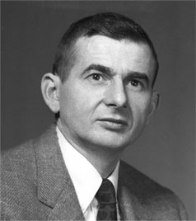
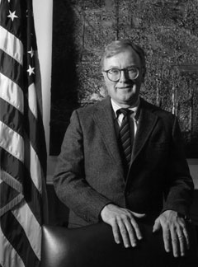
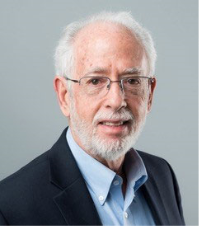
CEEPR was founded in 1977, in the wake of the first oil price shock and shortly before the second. MIT already had a track record of important contributions to the field of energy economics. Morris Adelman, a Professor in the Department of Economics, had been studying the oil market since the late 1950s, and in 1972 produced his massive, groundbreaking work, The World Petroleum Market. Paul MacAvoy, at the time a Professor in the Sloan School of Management, had produced important studies of price ceiling regulation applied to the natural gas industry. In 1972, he and Robert S. Pindyck, a Professor of Economics and Finance in the Sloan School, produced the first version of their “Econometric Policy Model of Natural Gas” to analyze alternatives for solving what was perceived to be a crisis shortage at the time. This foundation of energy economics research made MIT a natural home for a designated center to advance energy policy research.
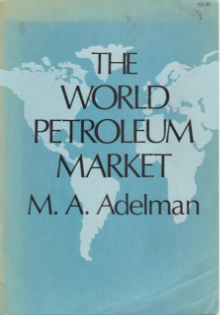


Oil And Gas Markets
One of the earliest research projects carried out at CEEPR was a four-year study organized by Morris Adelman, Robert S. Pindyck, and Henry D. Jacoby, a Professor in the Sloan School and CEEPR’s first Faculty Director. In this study, they developed improved methods and data for analysis of the world oil market. The project included studies of worldwide oil demand, analysis of supply from key producer areas, and the integration of supply and demand functions into a market simulation. Supply-demand analyses were combined with behavioral studies of the OPEC nations to produce forecasts of likely future developments in the oil market. Gordon Kaufman, a Professor of Statistics in the Sloan School, undertook an extensive effort to model the process of oil and gas exploration to allow better estimates of undiscovered oil and gas reserves, a line of work he still remains engaged in.
CEEPR remains a key source of research on the changing dynamics of the global fossil fuels industry. In the mid-1980s, CEEPR organized a three-part study of the nascent international trade in natural gas. The first part focused on the potential for Canadian exports to the United States; the second on Russian exports to Western Europe; and the third on natural gas (LNG) supplies to East Asia. Twenty-five years later, CEEPR researchers returned to the United States and global natural gas markets in a collaboration with other MIT faculty in The Future of Natural Gas study. Work on the economic and environmental implications of unconventional oil and gas, including price impacts and geopolitical effects, are underway with several CEEPR affiliates.
Oil And Gas Markets
One of the earliest research projects carried out at CEEPR was a four-year study organized by Morris Adelman, Robert S. Pindyck, and Henry D. Jacoby, a Professor in the Sloan School and CEEPR’s first Faculty Director. In this study, they developed improved methods and data for analysis of the world oil market. The project included studies of worldwide oil demand, analysis of supply from key producer areas, and the integration of supply and demand functions into a market simulation. Supply-demand analyses were combined with behavioral studies of the OPEC nations to produce forecasts of likely future developments in the oil market. Gordon Kaufman, a Professor of Statistics in the Sloan School, undertook an extensive effort to model the process of oil and gas exploration to allow better estimates of undiscovered oil and gas reserves, a line of work he still remains engaged in.
CEEPR remains a key source of research on the changing dynamics of the global fossil fuels industry. In the mid-1980s, CEEPR organized a three-part study of the nascent international trade in natural gas. The first part focused on the potential for Canadian exports to the United States; the second on Russian exports to Western Europe; and the third on natural gas (LNG) supplies to East Asia. Twenty-five years later, CEEPR researchers returned to the United States and global natural gas markets in a collaboration with other MIT faculty in The Future of Natural Gas study. Work on the economic and environmental implications of unconventional oil and gas, including price impacts and geopolitical effects, are underway with several CEEPR affiliates.
Electricity Markets
In 1983, Paul Joskow and Richard Schmalensee, two MIT Professors and later Faculty Directors of CEEPR, published the pioneering book Markets for Power, which opened up the policy discussion on liberalizing the electricity sector. CEEPR has been at the center of this field ever since, with important contributions on retail markets and problems of incentivizing capacity, with evaluations of the effectiveness of energy efficiency programs and analyses of transmission policy, and more. CEEPR’s research has emphasized the need to integrate analysis of the technical, institutional and economic characteristics of modern electrical power systems in order to develop sensible and effective policies. Recent contributions in this area include MIT’s 2011 interdisciplinary study The Future of the Electric Grid, which was co-chaired by Richard Schmalensee, then the Faculty Director of CEEPR, and the Utility of the Future study, co-chaired by Christopher Knittel, the current CEEPR Faculty Director and George P. Shultz Professor of Applied Economics in the Sloan School, and CEEPR Visiting Professor José Ignacio Pérez-Arriaga.
Work on electricity markets has also included important contributions to the understanding of the economics and regulation of low-carbon energy sources. The growth of nuclear energy in the 20th century was a major focus of policy research, with Paul Joskow Joel Yellin, Henry Jacoby and Thomas Neff focusing on issues such as uranium supplies and markets, the economics of nuclear power production, the nuclear fuel cycle and the environmental impacts of nuclear power plant siting. Trade in nuclear technology and the dangers of nuclear proliferation were the focus of early research by Professors Richard Lester of the Department of Nuclear Science and Engineering, and Richard Samuels of the Department of Political Science. Twenty years later, CEEPR researchers helped carry out the widely-cited study The Future of Nuclear Power. Likewise, the costs, potential and regulatory implications of renewable energy have featured in a number of research contributions, including, most recently, the landmark study on The Future of Solar Energy chaired by Richard Schmalensee and Vladimir Bulović, a Professor at the School of Engineering and Director of MIT.nano.
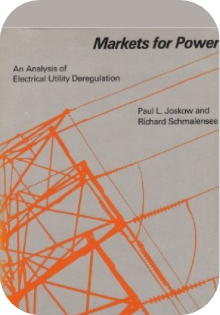
Electricity Markets
In 1983, Paul Joskow and Richard Schmalensee, two MIT Professors and later Faculty Directors of CEEPR, published the pioneering book Markets for Power, which opened up the policy discussion on liberalizing the electricity sector. CEEPR has been at the center of this field ever since, with important contributions on retail markets and problems of incentivizing capacity, with evaluations of the effectiveness of energy efficiency programs and analyses of transmission policy, and more. CEEPR’s research has emphasized the need to integrate analysis of the technical, institutional and economic characteristics of modern electrical power systems in order to develop sensible and effective policies. Recent contributions in this area include MIT’s 2011 interdisciplinary study The Future of the Electric Grid, which was co-chaired by Richard Schmalensee, then the Faculty Director of CEEPR, and the Utility of the Future study, co-chaired by Christopher Knittel, the current CEEPR Faculty Director and George P. Shultz Professor of Applied Economics in the Sloan School, and CEEPR Visiting Professor José Ignacio Pérez-Arriaga.
Work on electricity markets has also included important contributions to the understanding of the economics and regulation of low-carbon energy sources. The growth of nuclear energy in the 20th century was a major focus of policy research, with Paul Joskow Joel Yellin, Henry Jacoby and Thomas Neff focusing on issues such as uranium supplies and markets, the economics of nuclear power production, the nuclear fuel cycle and the environmental impacts of nuclear power plant siting. Trade in nuclear technology and the dangers of nuclear proliferation were the focus of early research by Professors Richard Lester of the Department of Nuclear Science and Engineering, and Richard Samuels of the Department of Political Science. Twenty years later, CEEPR researchers helped carry out the widely-cited study The Future of Nuclear Power. Likewise, the costs, potential and regulatory implications of renewable energy have featured in a number of research contributions, including, most recently, the landmark study on The Future of Solar Energy chaired by Richard Schmalensee and Vladimir Bulović, a Professor at the School of Engineering and Director of MIT.nano.




Transportation
CEEPR’s initial research program included a comparative study of the Federal government’s efforts to regulate the automobile industry in the areas of emissions, safety and fuels, involving Henry Jacoby, John Heywood, a Professor of Mechanical Engineering, and Lawrence Linden. Other topics considered include: the impacts of uncertainty in measuring emissions and air quality on urban air pollution; market strategy implications of fuel-economy standards; the political implications of the standards versus taxes choice; and an analysis of the political implications of efforts by the U.S. Congress to regulate auto emissions. In 2009, John Heywood and Henry Jacoby published Transportation in a Climate-Constrained World. Christopher Knittel continues research on the automobile industry with empirical analysis of how technological change is directed, as well as several studies assessing the political economy of ethanol subsidies, renewable fuel standards and carbon policy.
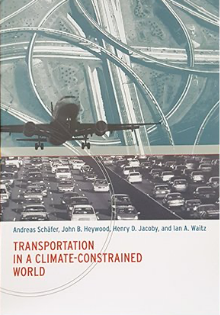

Investment, Finance And Risk Management
Capital budgeting and contract design for large-scale energy projects is increasingly complicated by future operating cost uncertainty, changing regulations and tax policies, and technology developments. Recent advances in finance theory have resulted in new analytical methods that directly address the strategic costs and benefits associated with these uncertainties. Since the mid-1980s, the center has funded research developing practical methods of applying option-pricing techniques to evaluate a large class of risky investments. A series of CEEPR workshops in the late-1980s played an important role in profiling these techniques and evaluating their applicability to industry strategy. Some results have been published in Robert Pindyck’s co-authored 1994 book, Investment under Uncertainty. These techniques have now become a standard element of corporate finance curriculums and textbooks. Current research is directed toward improving our understanding of the use of energy futures, forwards and other forms of risk management in energy markets, an area advanced by John Parsons, a Senior Lecturer at the Sloan School of Management and CEEPR Associate Director.

Climate Change And The Environment
As environmental problems have become increasingly complex and the cost of achieving more stringent environmental goals has risen, public policy interest has turned to alternatives to traditional command-and-control approaches to environmental regulation. Since early 1995, the center has contributed greatly to public understanding of one such alternative through its definitive study of implementation of the U.S. Acid Rain Program. The program is described and evaluated in the influential 2000 book Markets for Clean Air, co-authored by CEEPR’s Executive Director at the time, A. Denny Ellerman, together with Paul Joskow, Richard Schmalensee, and CEEPR Affiliates Juan-Pablo Montero and Elizabeth M. Bailey. This important work was extended to climate change with the study of markets for carbon, including the EU’s Emissions Trading System featured in the 2010 book Pricing Carbon: The European Union Emissions Trading Scheme by Denny Ellerman et al. CEEPR’s Deputy Director Michael Mehling continues CEEPR’s efforts on this topic by assessing existing and emerging carbon pricing efforts and prospects for cross-border market integration.

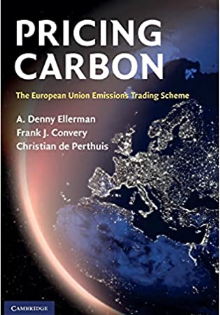



Also in the area of climate change, CEEPR has developed an interdisciplinary effort organized as the Joint Program on the Science and Policy of Global Change, which is co-sponsored with the MIT Center for Global Change Science and originally co-directed by Henry D. Jacoby, CEEPR’s first director, and Ronald G. Prinn, Professor of Atmospheric Science at the Department of Earth, Atmospheric and Planetary Sciences. Through this program, MIT’s excellence in physical sciences, engineering and the policy sciences is focused on a completely integrated approach to the problems of global change. More recently, CEEPR affiliates have also been studying current rulemaking efforts by the U.S. EPA to constrain carbon emissions from transport and stationary sources in the United States.
In recent years, CEEPR has sharpened its focus on understanding the complex relationship between human welfare and the environment by bringing rigorous economic analysis to bear on the design of public policies that govern the environment. While at CEEPR, Michael Greenstone, then a Professor of Environmental Economics at the Economics Department, studied the economic impacts of climate change, the costs and benefits of air quality, the returns to clean-ups of hazardous waste sites, and the role of environmental quality in fostering growth in developing countries. Christopher Knittel has likewise explored the health benefits of environmental policies in the transport sector.
Also in the area of climate change, CEEPR has developed an interdisciplinary effort organized as the Joint Program on the Science and Policy of Global Change, which is co-sponsored with the MIT Center for Global Change Science and originally co-directed by Henry D. Jacoby, CEEPR’s first director, and Ronald G. Prinn, Professor of Atmospheric Science at the Department of Earth, Atmospheric and Planetary Sciences. Through this program, MIT’s excellence in physical sciences, engineering and the policy sciences is focused on a completely integrated approach to the problems of global change. More recently, CEEPR affiliates have also been studying current rulemaking efforts by the U.S. EPA to constrain carbon emissions from transport and stationary sources in the United States.
In recent years, CEEPR has sharpened its focus on understanding the complex relationship between human welfare and the environment by bringing rigorous economic analysis to bear on the design of public policies that govern the environment. While at CEEPR, Michael Greenstone, then a Professor of Environmental Economics at the Economics Department, studied the economic impacts of climate change, the costs and benefits of air quality, the returns to clean-ups of hazardous waste sites, and the role of environmental quality in fostering growth in developing countries. Christopher Knittel has likewise explored the health benefits of environmental policies in the transport sector.



